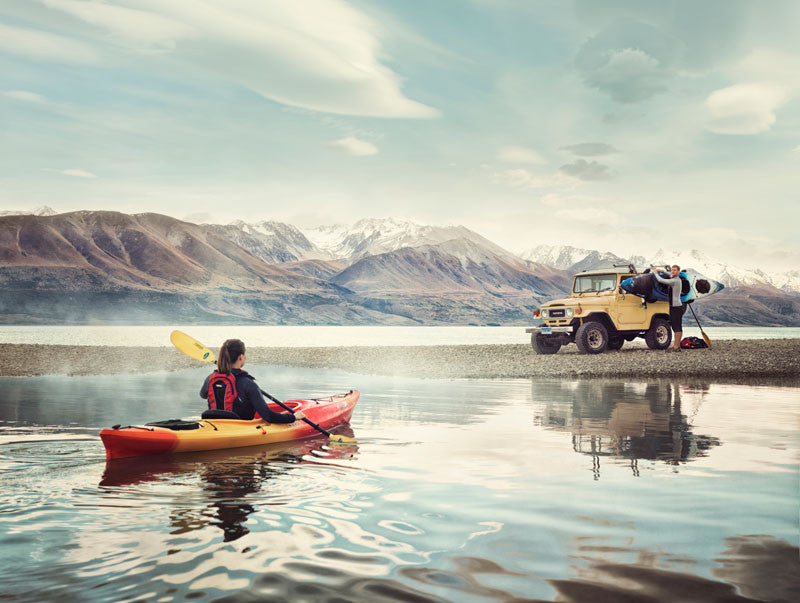
Say NO to the factory roof rack
So you’re purchasing a new vehicle, congrats!
You’ve no doubt spent a good deal of time analyzing reliability, gas mileage and performance and are ready to sign the dotted line. But wait….the dealer has just a few options they’d like to chat about. Alongside the rust proofing and paint protection film, they notify you that those crossbars that you were hoping to strap your kayak to aren’t actually included in your trim level. Before you go ahead and authorize this add-on, know that you’ve got options!
Now maybe you’re just looking for a rack to look pretty on your vehicle, and in that case, the “new car selfie” you post to Instagram will probably look just as good with the flimsy rack they’ll slap on there! However, if you actually want to use it, consider an aftermarket option.
First off, depending on your vehicle of choice, a factory rack option may not even be available. If you’re buying a sedan, pickup truck or coupe there will likely be no offered options from the dealership, leaving you to the aftermarket racks, which isn't a bad thing. (Sidenote - We’ve equipped everything from Mini Coopers to F350’s, never assume it’s not possible!) For the rest of this blog though we’re going to consider that the dealership does have an option for you; so why go aftermarket?
- Flexibility - Factory racks don't always give you the availability to carry the full variety of gear on top. Weight limits and crossbar spreads (distance between the front and rear crossbar) are often smaller on factory racks than the aftermarket options. Wider crossbar spreads and higher weight limits will allow you to carry things like cargo boxes or boats. For example, if the weight capacity of the factory rack is only 70 lbs total and your cargo box comes in at 35 lbs empty; that only leaves you with 35 lbs of capacity. This isn’t much if you’re a family of four with a dog and stroller hitting the road to Grandma's and Grandpa's house two days drive away. When transporting kayaks, it’s even more important to pay attention to spreads and weights. The wider the spread, the more stable it will be on top, and if you’d like to ever take more than one kayak, you’ll likely want the biggest weight capacity you can get.
- Cost – Pricing from the dealership varies greatly depending on the brand, but often roof racks are also only available packaged with other accessories. For example, let’s say you’re buying a Honda CRV. This vehicle does have a factory rack option, however it comes in a “Utility Package” which also includes running boards you may or may not have wanted, the cost; $1715 plus tax. Ouch!!! Thule's base roof rack for this same vehicle comes in just over $500. Down the road (pun intended!) your wallet will also thank-you, as aftermarket racks like those from Thule and Yakima are “built” from different pieces, and some or all of these pieces may be transferable to your next vehicle. With most factory racks they only fit on that vehicle, so instead of keeping it, you end up giving it to the next owner or the scrap yard.
- Accessory Attachments – While many car companies offer crossbars, many don’t offer a full selection of accessory attachments. This leaves you searching the aftermarket for a proper kayak, bike or SUP carrier anyways. Some of these will work on factory bars, but rarely as well as they will on a matching brand’s base system. In the case of kayak “load assist” devices, many of the most popular ones will only work on Thule or Yakima crossbars.
So while we can’t help you with the rust proofing, we’d be happy to provide a quote on a roof rack system, and help you say no to factory racks!

